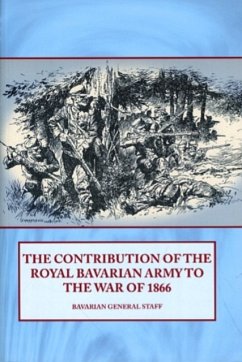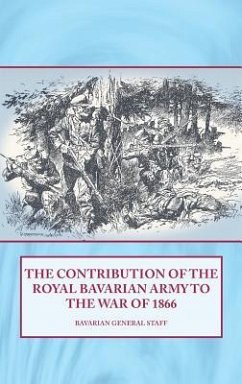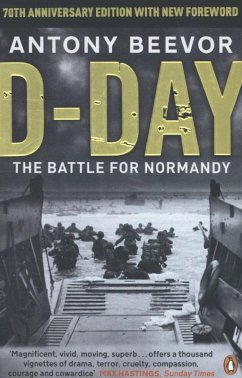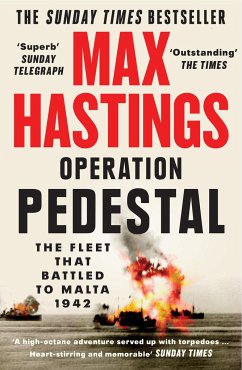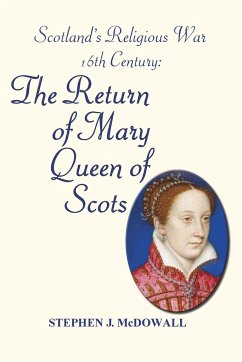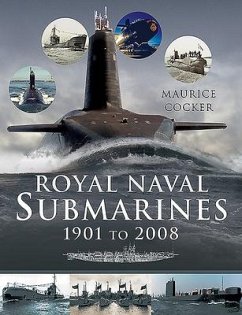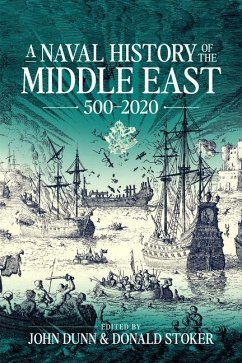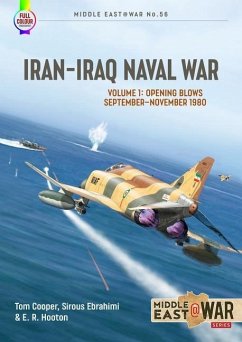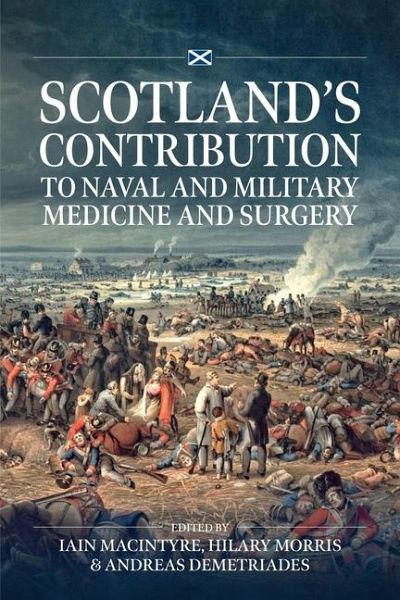
Scotland's Contribution to Naval and Military Medicine and Surgery
Versandkostenfrei!
Versandfertig in über 4 Wochen
32,99 €
inkl. MwSt.

PAYBACK Punkte
16 °P sammeln!
From the early 18th century Scotland produced large numbers of medical graduates, many of whom joined the armed forces. This book outlines the contributions which these doctors made to military and naval medicine from the 18th century to WWI. Each of the 12 chapters is based on a presentation made to an online symposium held by the Scottish Society of the History of Medicine in association with the History Society of the Royal Society of Medicine. The authors are experts in their respective fields. Scotland's Contribution gives new insights into established leaders in this developing specialit...
From the early 18th century Scotland produced large numbers of medical graduates, many of whom joined the armed forces. This book outlines the contributions which these doctors made to military and naval medicine from the 18th century to WWI. Each of the 12 chapters is based on a presentation made to an online symposium held by the Scottish Society of the History of Medicine in association with the History Society of the Royal Society of Medicine. The authors are experts in their respective fields. Scotland's Contribution gives new insights into established leaders in this developing speciality including Sir John Pringle and Sir James McGrigor, while Sir Charles Bell's legacy to military surgery, his artwork, is given a fresh analysis. Other chapters outline the remarkable saga of Dr James Barry, the first trans man to qualify in medicine in Britain and the painstaking detective work of Sir David Bruce in discovering the cause of brucellosis. One of the chapters on WWI describes the work of Gray, Fraser and Wade while the other is an account of a Scottish Women's Hospital unit in Salonika. There are also accounts of less well-known figures. Scotland's Contribution will appeal to all those with an interest in the history of military medicine and surgery, and in the history of medicine in Scotland. Contributors to the book are: Tom Scotland, Peter Starling, Michael Crumplin, Max Cooper, David Vassallo, Peter Brinsden, Carol Parry, and Cat Irving



